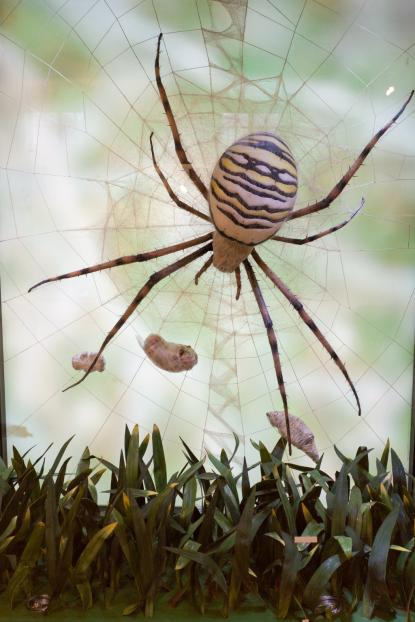2025. July 8. Tuesday
Hungarian Natural History Museum - Budapest
 |
Address: 1083, Budapest Ludovika tér 2-6.
Phone number: (1) 210-1085, (1) 303-6193
E-mail: mtminfo@nhmus.hu
Opening hours: Mon, Wed-Sun 10-18
|
Museum tickets, service costs:
|
Individual ticket for adults
(valid for the permanent exhibitions)
|
2200 HUF
|
/ capita
|
|
Individual ticket for students
(valid for the permanent exhibitions, 6-26 years of age)
|
1100 HUF
|
/ capita
|
|
Group ticket for students
(to the Dino Garden )
|
900 HUF
|
/ capita
|
|
Individual ticket for pensioners
(valid for the permanent exhibitions, 62-70 years of age)
|
1100 HUF
|
/ capita
|
|
Individual supplementary fee
|
500 HUF
|
The Hungarian Natural History Museum, as an institution focusing on the study and preservation of biodiversity, now introduces a long-awaited new permanent exhibition: The Variety of Life. It offers a selection of the most varied groups of organisms and displays the diversity of habitats in Hungary.

The exhibition contains hundreds of original objects, several life-sized reconstructions and many photos to illustrate the variety of landscapes, the species-rich habitats and the genetic diversity of species.
In our well known Ark, you can stroll among hundreds of original specimens from the most diverse groups: plants, molluscs, arthropods, birds and primates. While exploring Hungarian landscapes, you can learn about and understand the geological and evolutionary processes taking place in geohistory which played a key role in the formation of the habitats in Hungary and the development of species inhabiting them.
Walk under the fearsome jaws of a prehistoric shark. Participate in a hunting adventure across the mammoth steppe. Have a rest in our most beautiful forests. Take a look at life in the most wonderful habitats from a bird's eye view perspective.
If we are familiar with the values of the natural environment we will more readily recognise the importance of preserving biodiversity.

The exhibition contains hundreds of original objects, several life-sized reconstructions and many photos to illustrate the variety of landscapes, the species-rich habitats and the genetic diversity of species.
In our well known Ark, you can stroll among hundreds of original specimens from the most diverse groups: plants, molluscs, arthropods, birds and primates. While exploring Hungarian landscapes, you can learn about and understand the geological and evolutionary processes taking place in geohistory which played a key role in the formation of the habitats in Hungary and the development of species inhabiting them.
Walk under the fearsome jaws of a prehistoric shark. Participate in a hunting adventure across the mammoth steppe. Have a rest in our most beautiful forests. Take a look at life in the most wonderful habitats from a bird's eye view perspective.
If we are familiar with the values of the natural environment we will more readily recognise the importance of preserving biodiversity.
